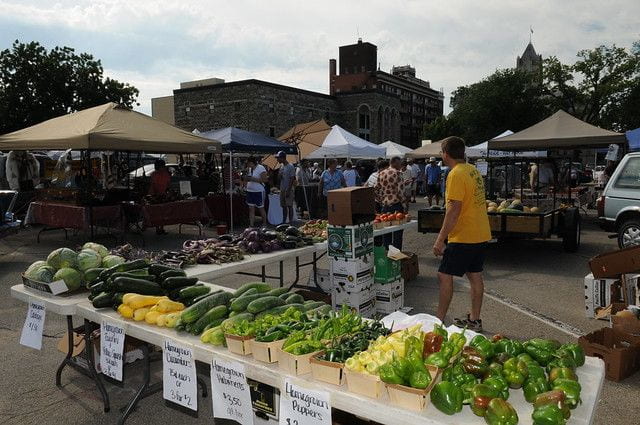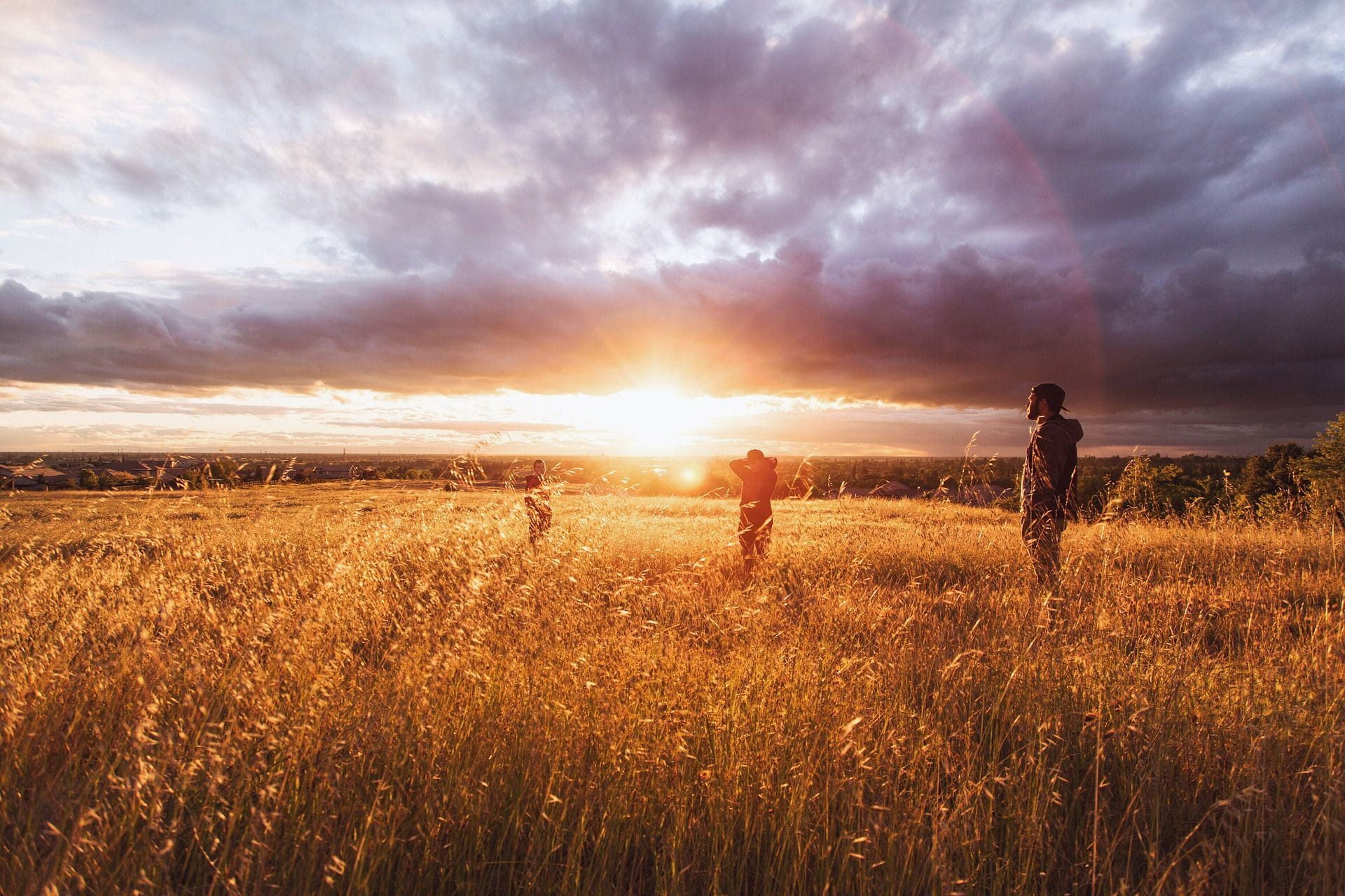In today’s Better Kansas, we address the hazards of sitting, food waste, empty nesters, lawn irrigation, 2020 wheat variety performance and a sheep and goat survey. This is a small glimpse of what K-State Research and Extension across the state has to offer. Keep the ideas and feedback coming and subscribe! – Mary Lou Peter mlpeter@ksu.edu
Better Living, Better Communities
FOR VARIOUS REASONS, MANY OF US HAVE BEEN SITTING … A LOT! That doesn’t mean we’re lazy. It’s just that a lot of us spend hours every day at a computer. And for those of us still working from home, we’re not even getting into our vehicles to go to and from work or walking into buildings, climbing the stairs at the office or other activity involved in our normal day-to-day lives. In fact, normal is beginning to feel like a distant memory. That’s why the article Are We Sitting Ourselves to Death? really resonated with me. The article references the K-State Research and Extension Walk Kansas program which won’t kick in again until next spring, but that doesn’t mean we can’t get out there and start moving on our own – even if it’s 15 minutes at lunchtime.
IT’S KIND OF SHOCKING, BUT WE WASTE A LOT OF FOOD – to the tune of $1,500 a year for a family of four on average. In total, 133 billion pounds or 30% to 40% of edible food is wasted each year, worth an estimated $161 billion in the United States alone. I’m as guilty as the next person when it comes to buying something that sounds good at the time, only to find it hidden behind the milk and orange juice in the fridge, covered with a fine layer of mold. Or remember that can of sweet potatoes you bought in 2012? For a whole lot more on this topic, read Working Together to Reduce Food Waste. It includes suggestions for ways to avoid food waste as well as productive ways you can still use food even if it’s not okay to eat.
 EMPTY NEST? When the last of the kiddos flies the coop or is about to, it can trigger a range of emotions for parents, including excitement, relief, anxiety and more. If they’re leaving because they’re off to school … or to a new job (would benefits be too much to ask?), it’s quite a moment. And what will day-to-day life be like without them? An article, What Happens Now? The Children are Gone has been around awhile, but how we feel and react to this part of life hasn’t changed much. This brought back my own flood of memories from when the first of my three went off to college and the reality that the dynamics of our family were changed forever. And wow, when the other two left, the house was SO (too) QUIET!
EMPTY NEST? When the last of the kiddos flies the coop or is about to, it can trigger a range of emotions for parents, including excitement, relief, anxiety and more. If they’re leaving because they’re off to school … or to a new job (would benefits be too much to ask?), it’s quite a moment. And what will day-to-day life be like without them? An article, What Happens Now? The Children are Gone has been around awhile, but how we feel and react to this part of life hasn’t changed much. This brought back my own flood of memories from when the first of my three went off to college and the reality that the dynamics of our family were changed forever. And wow, when the other two left, the house was SO (too) QUIET!
Better Farming, Ranching and Gardening
 THOUGH EARLY AUGUST BROUGHT WELCOME RAIN AND A BREAK IN TEMPERATURES for some of us, plenty of counties in western and southeast Kansas are still dry. Wherever we are, irrigating lawns may make sense this summer. But even if you’re watering three times a week, do you know how much moisture your grass is getting? One of the best (and amazingly simple) suggestions I’ve heard is to place empty cans in various places around your yard, so you can measure just how much water gathers in them. That suggestion and a whole lot more information is available on the Turfgrass Irrigating page.
THOUGH EARLY AUGUST BROUGHT WELCOME RAIN AND A BREAK IN TEMPERATURES for some of us, plenty of counties in western and southeast Kansas are still dry. Wherever we are, irrigating lawns may make sense this summer. But even if you’re watering three times a week, do you know how much moisture your grass is getting? One of the best (and amazingly simple) suggestions I’ve heard is to place empty cans in various places around your yard, so you can measure just how much water gathers in them. That suggestion and a whole lot more information is available on the Turfgrass Irrigating page.
 MAKING DECISIONS – ESPECIALLY THOSE WITH BIG FINANCIAL, TIME AND EFFORT IMPLICATIONS, is difficult, but Kansas wheat growers have help as they determine what varieties to plant this fall. The Wheat Variety Disease and Insect Rating 2020 publication shows how different wheat varieties fared around the state in the 2019-20 growing season with regard to disease and insect challenges. The information, used in combination with data available in the K-State Winter Wheat Performance Tests report, offers growers powerful tools to assist in making planting decisions.
MAKING DECISIONS – ESPECIALLY THOSE WITH BIG FINANCIAL, TIME AND EFFORT IMPLICATIONS, is difficult, but Kansas wheat growers have help as they determine what varieties to plant this fall. The Wheat Variety Disease and Insect Rating 2020 publication shows how different wheat varieties fared around the state in the 2019-20 growing season with regard to disease and insect challenges. The information, used in combination with data available in the K-State Winter Wheat Performance Tests report, offers growers powerful tools to assist in making planting decisions.
 NOT LONG AGO I DISCOVERED HOW MUCH I LIKE GOAT CHEESE, so was happy to learn that the sheep and goat industry across Kansas is growing. In 2018, Kansas was home to nearly 74,000 sheep, 43,000 goats raised for meat and 6,000 goats raised for dairy. To help determine the economic impact of that industry, K-State Research and Extension and the Kansas Department of Agriculture are asking producers to take the Sheep and Goat Survey. The results will be used to help guide education, marketing, research and outreach efforts and will shed light on sheep and goat inventories in particular parts of the state.
NOT LONG AGO I DISCOVERED HOW MUCH I LIKE GOAT CHEESE, so was happy to learn that the sheep and goat industry across Kansas is growing. In 2018, Kansas was home to nearly 74,000 sheep, 43,000 goats raised for meat and 6,000 goats raised for dairy. To help determine the economic impact of that industry, K-State Research and Extension and the Kansas Department of Agriculture are asking producers to take the Sheep and Goat Survey. The results will be used to help guide education, marketing, research and outreach efforts and will shed light on sheep and goat inventories in particular parts of the state.
_
For more resources and activities, contact the K-State Research and Extension office in your area. Check out our other blogs and subscribe to our weekly emails here: https://www.ksre.k-state.edu/news/blogs/












